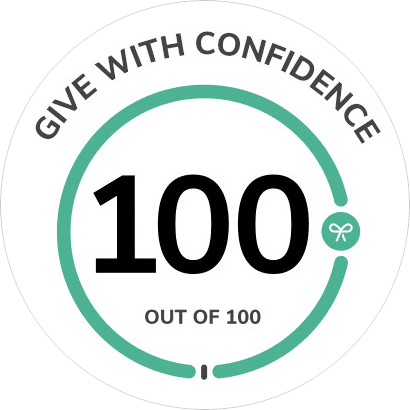
Meg Faibisch journeyed to Haojiping, China, in search of an authentic, rural experience and cross-cultural friendships. After her two-month United Planet China Summer Teaching Quest, she gained what she sought out, and much more. We caught up with the Californian teen for an interview.
UP: What was your volunteer experience like?
 MF: My volunteer work in Haojiping was unlike any other experience that I have ever had in my life. I woke up at 7 every morning and showered in fresh mountain spring water. If it was my day for chores, I would sweep my room (that I shared with 6 other girls), empty out the trash cans, dump the toilets, collect sawdust from the local wood mill for the makeshift Western style toilets, and do the laundry.
MF: My volunteer work in Haojiping was unlike any other experience that I have ever had in my life. I woke up at 7 every morning and showered in fresh mountain spring water. If it was my day for chores, I would sweep my room (that I shared with 6 other girls), empty out the trash cans, dump the toilets, collect sawdust from the local wood mill for the makeshift Western style toilets, and do the laundry.
At 8 A.M., a Chinese volunteer would call out that it was time for breakfast. “Time to breakfast!” he would yell. We would all grab our dishes and skip to the kitchen to find our typical breakfast—steamed buns and roasted peanuts. At 9, it was time for class. I had three teaching partners: Melissa, an American who is fluent in Mandarin (and who I now consider one of my best friends), Wang Si Si, a Chinese girl who studies at a college in Huaihua, and Cai Xiao Si, a Chinese man who is passionate about basketball and geography.
There were five classes in one school day. Wang Si Si and Cai Xiao Si would each teach one individually, and then another together. Melissa and I taught the remaining two classes. Generally, we focused on teaching our students English, but we also took the opportunity to teach them about America.
Aside from teaching, all of the volunteers collaborated to discuss the environment. We met to discuss the environmental flaws that we recognized in Haojiping, and tried to think of realistic solutions that would aid in preventing environmental disasters.
 Some examples of environmental problems that plague Haojiping include: unsustainable cutting of trees (deforestation), the ever-growing trash pile, and the littering problem that contaminates the water supply. Our most viable solution was to promote awareness of the issues in order to prevent them from growing. Unfortunately, immediate relief of the problems was not feasible because of monetary barriers.
Some examples of environmental problems that plague Haojiping include: unsustainable cutting of trees (deforestation), the ever-growing trash pile, and the littering problem that contaminates the water supply. Our most viable solution was to promote awareness of the issues in order to prevent them from growing. Unfortunately, immediate relief of the problems was not feasible because of monetary barriers.
We taught for five consecutive days each week, and then had two days off. On our days off, we would go on mini excursions to various places, such as the market (which was an hour away by bus), spelunking in a local cave, hiking to a student’s home (5 hours up a mountain on foot, in my case), and swimming under a small waterfall.
Over the duration of the trip, the Chinese and American volunteers grew very close. We had a talent show one night and a cultural exchange show another, both of which ended in sing-offs between the Chinese and Americans. In addition to the bonds that were made volunteer–to-volunteer, many of the teachers became close with students.
UP: Will you share a personal anecdote about your trip? Any funny or unforgettable moments?
 MF: Though the students were generally enthusiastic about having foreign teachers teaching them English, they occasionally lost interest. We couldn’t blame them either—this was their summer vacation too, and they were spending it in a classroom. To keep them engaged but also learning, my teaching partner Melissa and I decided to teach them a lesson on hygiene. We brought our floss to class the next day and taught our students what it was for, and how to use it. The concept of floss was truly foreign to these children—some of them didn’t even bother to brush their teeth. One by one, we distributed my cinnamon-flavored floss and Melissa’s mint-flavored floss to the sixteen students in our class. Next thing we knew, the students were asking for more to take home!
MF: Though the students were generally enthusiastic about having foreign teachers teaching them English, they occasionally lost interest. We couldn’t blame them either—this was their summer vacation too, and they were spending it in a classroom. To keep them engaged but also learning, my teaching partner Melissa and I decided to teach them a lesson on hygiene. We brought our floss to class the next day and taught our students what it was for, and how to use it. The concept of floss was truly foreign to these children—some of them didn’t even bother to brush their teeth. One by one, we distributed my cinnamon-flavored floss and Melissa’s mint-flavored floss to the sixteen students in our class. Next thing we knew, the students were asking for more to take home!
UP: Any moment where you felt particularly proud of an accomplishment?
MF: A big issue that Melissa and I faced with our class was gender equality. It was pretty clear to us that the male students were brought up with the notion that males were superior. The girls in our class were all afraid to speak up in class, especially because they were outnumbered.

One day, we noticed a boy in
our class picking on a shy girl. Immediately, we reprimanded the boy, warning him that he would face consequences if he continued such behavior. Melissa and I were shocked when the boy talked back: he said that it didn’t matter because she was a girl. Unsure of how to react, Melissa and I discussed our plan of action. After break, we corralled out students into their seats and demanded them to listen. We explained to them the history of gender equality in America. We did our best to convey the message that all humans were equal, regardless of their social stature, their race, their skin color, etc. By the end of our rant, the boy who was bullying the girl stood up and apologized sincerely. As teachers, that was one of our proudest moments.
UP: Overall, what has stuck with you as the most profound part of your trip?
 MF: This experience taught me how the other side of the world lives. Living in an affluent area my whole life, I returned from China loathing the complaints that I was bound to hear at school about “first world problems,” like wanting the latest smart phone, or expecting a new car on your sixteenth birthday. I was teaching children who owned one or two outfits that they would wear until they outgrew them, and who walked for hours just to get to school every day. Coming home, I was overjoyed to finally be able to sleep on a soft mattress and bite into a fresh apple. I realized that I have so many opportunities and privileges compared to those village children, who would need to work extra hard just to leave the mountains and get a decent education in the city.
MF: This experience taught me how the other side of the world lives. Living in an affluent area my whole life, I returned from China loathing the complaints that I was bound to hear at school about “first world problems,” like wanting the latest smart phone, or expecting a new car on your sixteenth birthday. I was teaching children who owned one or two outfits that they would wear until they outgrew them, and who walked for hours just to get to school every day. Coming home, I was overjoyed to finally be able to sleep on a soft mattress and bite into a fresh apple. I realized that I have so many opportunities and privileges compared to those village children, who would need to work extra hard just to leave the mountains and get a decent education in the city.
 Being back in the United States and facing the stresses and hardships of high school life, I realize that my summer in China has greatly influenced my motivation. Whenever I am feeling tired and overwhelmed, I remind myself of the future that I am capable of creating for myself compared to my students, who would have to cross an ocean (figuratively and literally) to be in the position that I’m in. I am blessed to have had the privilege to see their lifestyle firsthand, and I hope to someday do it again.
Being back in the United States and facing the stresses and hardships of high school life, I realize that my summer in China has greatly influenced my motivation. Whenever I am feeling tired and overwhelmed, I remind myself of the future that I am capable of creating for myself compared to my students, who would have to cross an ocean (figuratively and literally) to be in the position that I’m in. I am blessed to have had the privilege to see their lifestyle firsthand, and I hope to someday do it again.
UP: Any advice for people thinking about volunteering and traveling through UP?
MF: Don’t think twice! Your only regret would be NOT going! I learned so many valuable life lessons through this volunteer opportunity, and the feeling one gets when they know that they have touched another soul is unmatched. I went into the program expecting the worst in terms of living conditions (sleeping situations, bathrooms, etc.), but when I got there, it wasn’t nearly as bad as I had imagined it to be. As long as you are willing to adapt, I think that you will find that the positives far outweigh the negatives.
And…bring mosquito repellent.
Thank you, Meg, for your commitment and dedication to volunteering and working with United Planet, and for sharing your wonderful experiences.
If you are ready for an adventure, and want to learn more about the China Summer Teaching Quest, visit our website!
ABOUT UNITED PLANET
United Planet is a non-profit organization with a mission to create a global community, one relationship at a time. Established in 2001, United Planet offers volunteer abroad, virtual internships, internships abroad, gap year volunteering, and global virtual exchange in more than 40 countries.




